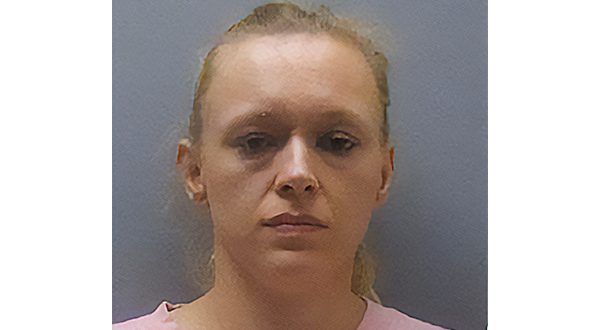
KANSAS CITY, Mo. A St. Joseph, Mo., woman pleaded guilty in federal court last week to using the stolen identities of prison inmates to fraudulently obtain federal unemployment benefits under the Coronavirus Aid, Relief, and Economic Security (CARES) Act.
Brooke Stewart, 38, pleaded guilty before U.S. District Judge Brian C. Wimes to one count of stealing government property.
By pleading guilty today, Stewart admitted that she facilitated the filing of false claims for unemployment benefits by using the stolen identity information of five individuals who were incarcerated in state or federal prison and therefore not eligible to receive Missouri and enhanced unemployment benefits. Stewart also fraudulently received federal unemployment benefits in her own name and another person.
As a result of her fraud scheme, Stewart stole at least $139,663 in benefits under the Coronavirus Aid, Relief, and Economic Security (CARES) Act, which provided additional federal pandemic unemployment compensation to eligible individuals receiving other unemployment benefits under state laws.
None of the inmates whose identity information was stolen actually received any of the fraudulently obtained benefits. Among those individuals whose stolen identity information was used to obtain benefits from May 2020 to June 2021 were federal defendants Garland Nelson and Brooke Beckley. Nelson is serving a 32-year federal prison sentence for a cattle fraud scheme that led to two murders in Braymer, Mo., and for illegally possessing a firearm, as well as two life sentences in a separate state case for the murders. Beckley is serving a 40-year prison sentence for her role in the murder of a Mexican national who was executed to help her avoid paying a debt owed in a drug-trafficking conspiracy in the Springfield, Mo., area.
Under federal statutes, Stewart is subject to a sentence of up to 10 years in federal prison without parole. The maximum statutory sentence is prescribed by Congress and is provided here for informational purposes, as the sentencing of the defendant will be determined by the court based on the advisory sentencing guidelines and other statutory factors. A sentencing hearing will be scheduled after the completion of a presentence investigation by the United States Probation Office.
This case is being prosecuted by Assistant U.S. Attorney Paul S. Becker. It was investigated by the Department of Homeland Security, Office of Inspector General and the Department of Labor, Office of Inspector General Office of Investigations & Labor Racketeering Fraud.
WebReadyTM Powered by WireReady® NSI










